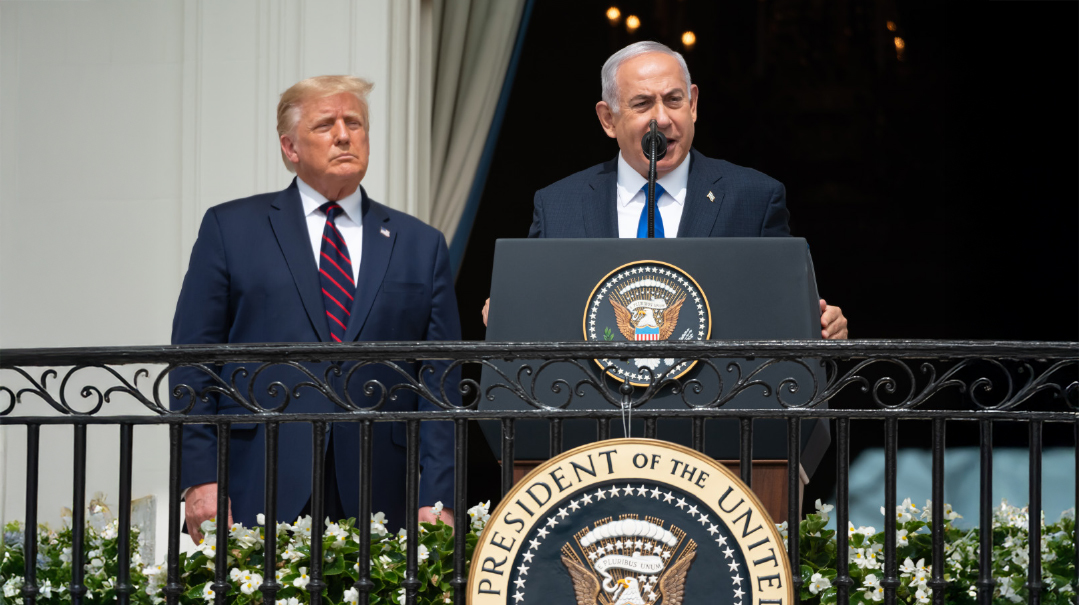Setting the Table

Why Netanyahu wanted a ceasefire in the first place

PHOTO: SHUTTERSTOCK / NOAMGALAI
1
IN Israel, even ceasefire deals have a chareidi angle.
“You can’t seriously talk about passing a draft law during wartime,” Shas chairman Aryeh Deri told me on multiple occasions throughout the war, as someone who sat in on closed security meetings over the past year. “After a ceasefire, the chances of an agreement with the blessing of the army will be much more realistic.”
Deri believed that in a reality in which Israel wakes up daily to the chilling phrase “hutar l’pirsum [it has been approved for publication],” no arrangement that has the effect of exempting Torah learners from the draft will ever become law, whether it lands in the Knesset plenum, the committees, or the attorney general’s office.
The ceasefire in Lebanon and the potential one in Gaza will make it possible to resume the professional conversation with the army. Contrary to the line pushed by politicians, the goals set by the professional echelon fully align with the terms the chareidim have signaled they can accept in the deliberations of the Foreign Affairs and Defense Committee.
A broad regional arrangement, therefore, could pave the way for an arrangement to resolve the status of yeshivah and kollel students.
2
Since the signing of the Lebanon ceasefire last week, the positions have been reversed. While Bibi’s loyalists have been singing the praises of peace, the left has been critical of the deal, arguing that Netanyahu squandered Israel’s military achievements by failing to establish a buffer zone in southern Lebanon.
What drove Netanyahu to seek a deal now, instead of holding out for Trump’s return to the White House?
Netanyahu sees the dark days — for Hezbollah — between the pager operation and Nasrallah’s elimination as Israel’s high-water mark vis-à-vis Hezbollah, believing that a prolonged attritionary conflict only works in Iran’s favor.
In the short term, the effort to secure a ceasefire in the twilight between the two administrations served the goals of separating the two fronts, allowing the army to recuperate from the arms embargo and reservists’ fatigue, and most importantly, staving off a repeat of the infamous anti-Israel UN Resolution 2334, which made it past the Security Council in December 2016 after the lame-duck Obama administration chose to abstain from the vote.
While Israel missed the trouble brewing in The Hague, the same can’t be said for New York.
“I said that this wasn’t going to be an easy time,” Danny Danon told me. Israel’s ambassador to the UN, now clearly relieved, was reporting to Netanyahu daily before the signing of the ceasefire deal. “You can never let your guard down, but cooperating with the administration does give us some security.”
After the massive security failure of October 7, bitachon (security) is important — but emunah more so.
3
The above considerations explain why Netanyahu sought a ceasefire before Trump took office, but it’s not enough to explain why Netanyahu wanted a ceasefire in the first place.
A better staller than Netanyahu has yet to be born. To get through the transition period, Netanyahu could have made do with words, stopping short of an actual deal. That strategy worked versus Obama, through an eight-year term that started with the Bar-Ilan speech, in which Netanyahu voiced support in principle for a two-state solution. I sat in the audience for that speech, and felt the winds of change blowing. Only Netanyahu himself knew that the grand gesture was a mere stalling tactic.
Seemingly, Bibi could easily have dragged out another two months in insincere negotiations.
But what Netanyahu had in view was the long term. Netanyahu has known Trump for many years, and he learned a lot from Trump’s first term.
And in his second term as president, after making the greatest comeback in American political history and securing a majority of the popular vote, Trump will be more powerful than ever before.
Unlike past presidents, for whom the Middle East was an obsession rather than a project, and in complete contrast to the conventional political mentality of killing time and pushing off tough decisions — of which Netanyahu is a master — Trump is a man of big, instant, and preferably simple solutions.
Here’s how one cabinet minister who’s been at Netanyahu’s side through the war explained it to me: If Netanyahu brought up the Lebanon issue to Trump on day one, Trump would support Israel far more robustly than the previous generation, potentially helping to secure a much better deal. But then his patience would run out, and he’d move on to the next thing.
Bibi preferred to come to Trump with the Lebanon issue settled, in order to begin the term with a strategic conversation about the Iranian threat rather than wasting Trump’s time on endless discussions about the tactical matter of Lebanon.
During my visit to Washington during Trump’s first term, an administration official gave me the following analogy: “Trump isn’t the type for long, multi-course meals with morsel-sized servings and matching cocktails. Give him a juicy hamburger with a glass of Coke and on to the next task.”
The second Trump administration, staffed with a dream team, could make him the president of the century, but the groundwork has to be laid first. Netanyahu believes it’s essential to clear the table so he and Trump can get right to the main course, a succulent Persian dish.
(Originally featured in Mishpacha, Issue 1039)
Oops! We could not locate your form.







